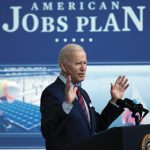UNCOMMON COMMON SENSE
By Bill Frayer
Less Austerity, More Airbags

The truth, as usual, is more complicated. We are in a time when income inequality is near an all time high. The rich have gotten much richer, and many previously “middle class” families are facing diminished employment and economic insecurity. The cuts in spending for social programs, which are cloaked euphemistically under the innocuous goal of “austerity,” fall on those with the least economic stability. In many states, including my home state of Maine, governors are refusing to implement a federally funded expansion of medical care for the poor and disabled in the name of fiscal responsibility. Major cuts in the food stamp program have been implemented on a federal level. And more cuts are to come.
Brown University political science professor Mark has called this type of thrift “socialism for the rich and capitalism for the poor. I’m all in favor of everyone tightening their belts the minute we’re all wearing the same pants.” Those who can least afford to lose money or economic assistance are the first ones being asked to pay the price. It’s not surprising that as wages drop and unemployment grows, corporate profit is growing along with the investment portfolios of those who will never have to worry about making a mortgage payment or paying for a prescription.
We’re already seeing the same tendency in the European Union, where the wealthy countries, led by Germany, are insisting that poorer countries like Greece tighten their belts in the name of prosperity for all. Economic indicators suggest it isn’t working in Europe any better than it is in the United States.
The problem is the old oversimplified canard tirelessly promoted by conservatives for years: the free market will create prosperity for all if we would just let it work without restrictions. This, of course, is absurd and has been demonstrated false many times, most recently with the economic collapse of 2008.
Capitalism has been shown to be effective at producing prosperity, but it clearly does not reward everyone equally. Those who have capital to invest make out very well. For those who have only their labor to invest, the results are more uneven. For a variety of reasons, some people will lose their jobs, be unable to afford medical care, or be otherwise unable to profit from a free market economy.
Perhaps the best solution, which Blyth suggests, is “capitalism with air bags.” We don’t need to institute a planned socialist state to create a more equal quality of life. We just need to recognize that, even with a robust economy, we inevitably have those who will need assistance. We can certainly afford to do this. We need to get beyond the stereotype that anyone who needs assistance is, by definition, lazy and unwilling to work. Many who are suffering hardship today have been classified as the working poor. Many others have disabilities which prevent them from working. Minor investment by those who can easily afford to would make a huge difference to many less fortunate, and would be good for the economy as a whole by increasing participation in economic prosperity.
We figured out many years ago that we would all benefit from airbags in cars, even those of us who will never use them. Couldn’t we apply the same logic to the economy?
- April 2024 – Issue - March 31, 2024
- April 2024 – Articles - March 31, 2024
- April 2024 - March 31, 2024







